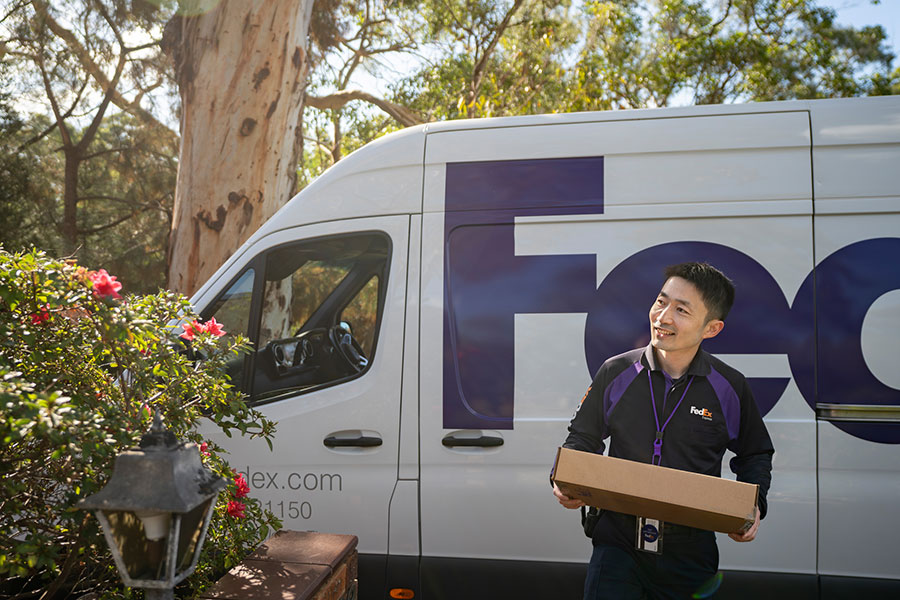Beyond Boutiques: Can E-Commerce Elevate Your Luxury Brand?
In luxury retail, maintaining a sense of exclusivity and prestige through the e-commerce experience is no small feat. Here’s how to do it right.
Luxury brands are champions of experiential marketing, wielding it more effectively than any other industry. With the goal of tapping into consumers’ desires and aspirations, it is important to create a sense of prestige – and this includes the purchase process.
According to research on where consumers are most likely to purchase luxury products in 2023, aside from brick-and-mortar stores, a significant number of consumers are drawn to the faster delivery and cost-effectiveness of boutique cross-border e-commerce or ‘proxy buying’. Proxy buying is for consumers who are seeking access to products and services that may be unavailable or restricted in their own regions, particularly for products from overseas.
However, unlike traditional in-store purchases, neither boutique cross-border e-commerce nor proxy buying can provide prestigious shopping experiences through one-on-one sales service.
The challenge of building prestige through e-commerce
According to research on where consumers are most likely to purchase luxury products in 2023, aside from brick-and-mortar stores, a significant number of consumers are drawn to the faster delivery and cost-effectiveness of boutique cross-border e-commerce or ‘proxy buying’. Proxy buying is for consumers who are seeking access to products and services that may be unavailable or restricted in their own regions, particularly for products from overseas.
However, unlike traditional in-store purchases, neither boutique cross-border e-commerce nor proxy buying can provide prestigious shopping experiences through one-on-one sales service.

According to this Institute of Transportation report, providing an outstanding delivery experience is key to making the customer experience as seamless as possible.
Boutique cross-border e-commerce and proxy buying for luxury goods come with unique challenges. Complex customs clearance, the vulnerability of high-value items in transit, and the need for real-time tracking are some things to consider when engaging in this emerging consumer trend.
To foster brand trust, it’s important to collaborate with a logistics company that can provide swift solutions and personalized customer service.
Timely and secure delivery is not just a logistical necessity, but a crucial aspect of meeting the elevated expectations of high-spending customers. Transparency in tracking, coupled with efficient handling, helps contribute to a sense of exclusivity with each purchase.
Boutique cross-border e-commerce and proxy buying for luxury goods come with unique challenges. Complex customs clearance, the vulnerability of high-value items in transit, and the need for real-time tracking are some things to consider when engaging in this emerging consumer trend.
Seamless logistics is a key ingredient in luxury e-commerce
To foster brand trust, it’s important to collaborate with a logistics company that can provide swift solutions and personalized customer service.
Timely and secure delivery is not just a logistical necessity, but a crucial aspect of meeting the elevated expectations of high-spending customers. Transparency in tracking, coupled with efficient handling, helps contribute to a sense of exclusivity with each purchase.
How e-commerce can serve luxury consumers
1. Instant access to luxury items

The speed of online shopping is a major draw for luxury consumers in Taiwan. One key driver of Taiwan’s luxury online shopping culture is immediate access to newly released products.
Boutique cross-border e-commerce and proxy buying services leverage their established channels to offer consumers new or “special edition” items before they hit domestic stores. This allows consumers to keep their finger on the pulse of fashion trends and stay ahead of the curve.
And when local boutiques have a limited selection of products, and consumers are unwilling to wait for restocks, cross-border e-commerce and proxy buying services offer the fastest way to get the luxury items that the shopper wants.
Boutique cross-border e-commerce and proxy buying services leverage their established channels to offer consumers new or “special edition” items before they hit domestic stores. This allows consumers to keep their finger on the pulse of fashion trends and stay ahead of the curve.
And when local boutiques have a limited selection of products, and consumers are unwilling to wait for restocks, cross-border e-commerce and proxy buying services offer the fastest way to get the luxury items that the shopper wants.
2. Dynamic pricing structures for luxury items

Beyond the allure of quick access to coveted items, consumers are also enticed by the flexible prices offered by boutique cross-border marketplaces and proxy buying services.
Benefits include potential fluctuations in foreign exchange rates or tax refunds available from overseas retailers. Consumers are more likely to secure coveted luxury items at more affordable prices – a major factor driving the growing popularity of proxy purchasing in Taiwan.
Speedy and attentive responses to inquiries and concerns also contribute significantly to customer satisfaction. A dedicated customer support team, well-versed in the nuances of the luxury market, adds a human touch to the entire experience.
This commitment to service excellence not only helps issues get resolved promptly, but enhances perceived brand value. This establishes consumer trust, fostering long-term relationships with customers who appreciate the attention to their needs.
By using FedEx’s agile, customized logistics solutions, boutique cross-border e-commerce and proxy buying services can provide an even better customer experience. Learn more about FedEx’s e-commerce solutions here.
Benefits include potential fluctuations in foreign exchange rates or tax refunds available from overseas retailers. Consumers are more likely to secure coveted luxury items at more affordable prices – a major factor driving the growing popularity of proxy purchasing in Taiwan.
3. Providing personalized, real-time customer service
Speedy and attentive responses to inquiries and concerns also contribute significantly to customer satisfaction. A dedicated customer support team, well-versed in the nuances of the luxury market, adds a human touch to the entire experience.
This commitment to service excellence not only helps issues get resolved promptly, but enhances perceived brand value. This establishes consumer trust, fostering long-term relationships with customers who appreciate the attention to their needs.
By using FedEx’s agile, customized logistics solutions, boutique cross-border e-commerce and proxy buying services can provide an even better customer experience. Learn more about FedEx’s e-commerce solutions here.
***



















 The Latest
The Latest